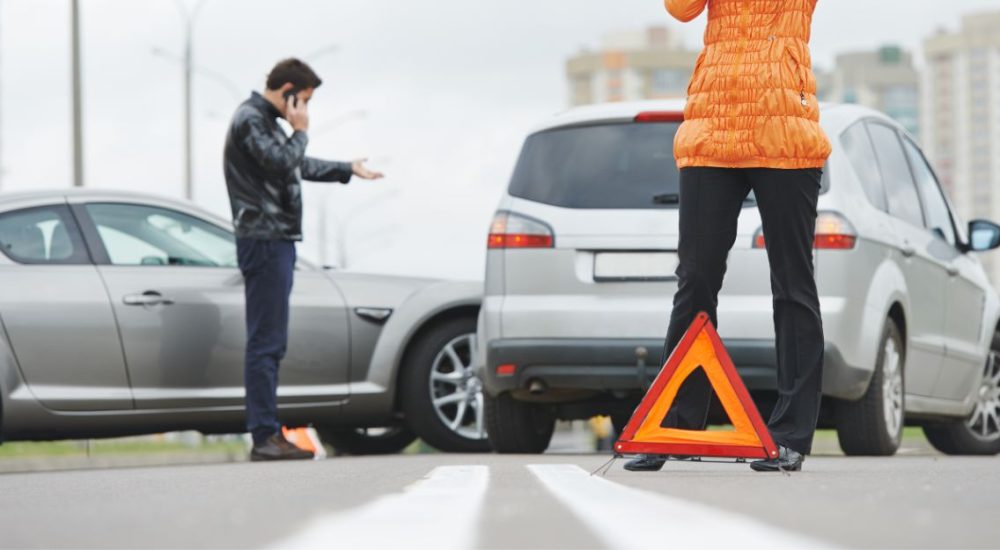Do Insurance Rates Go Up After a No-Fault Accident in Texas?
Every driver is legally required to carry auto insurance, and the state follows the fault rule for resolving these incidents. This means that when one driver is responsible for injuring another driver, the at-fault driver’s insurance pays for the injured driver’s damages. All drivers pay premiums to their insurance companies to maintain their coverage, and the price of a premium is generally determined on a case-by-case basis involving multiple variables.
If you recently experienced a car accident, it is natural to worry about the insurance claim filing process. Most insurance companies push back against claims whenever possible and try to justify the lowest possible settlement offers to injured claimants. When a driver causes an accident, their insurance premium is likely to increase because their insurance carrier will perceive them to be at a greater risk of causing more accidents in the future. However, it is possible for your insurance to increase after an accident, even if you were not at fault.
Understanding Auto Insurance Requirements and Premium Rates
Texas uses the fault rule to resolve car accidents, so the at-fault driver’s insurance will pay for the damages they caused to another driver. At a minimum, an auto insurance policy must include at least $30,000 to cover bodily injuries to a single person and increase to at least $60,000 for injuries to multiple people in a single accident. The policy must also have at least $25,000 to cover property damage.
A minimum coverage policy may be enough to compensate for the losses in a minor accident, but it may not be enough if the at-fault driver inflicted catastrophic injuries on others. When a driver purchases an auto insurance policy, the premium rate they pay is generally determined by the extent of coverage they want and various personal factors, such as age, driving history, and criminal record. Minimum coverage policies may be cheaper in terms of premiums, but a covered driver could end up paying much more to compensate for civil damages if their insurance cannot fully cover a victim’s losses.
An insurance policy will contain terms and conditions pertaining to the policyholder’s premium rate, including incidents that can cause a premium rate to increase. In many states, a driver is likely to see their premium increase after they cause an accident or after adding additional coverage to an existing policy. The state allows your insurance premium to increase after an accident, even if you were not at fault. For example, if you have been in multiple accidents recently and were not at fault for causing any of them, the insurance company may still deem you to have an increased risk of being involved in more accidents in the future.
When purchasing auto insurance, it is important to strike a balance between coverage and affordability. It doesn’t make sense to pay for excessive insurance coverage you may never need, but it is also prudent to invest in coverage beyond the minimum requirements so you have some extra breathing room if you are found responsible for an accident. If you believe that your insurance company has unfairly raised your premium rate or handled a claim in bad faith, it’s important to consult an attorney as soon as possible to see how you can address the situation.
FAQs
Q: Is Car Insurance Going Up in 2025?
A: Many residents have seen their auto insurance rates increase compared to 2022, and last year rates increased significantly. Auto insurance carriers in the state report that the reason behind these rate increases is a larger number of claims, increasing costs that are then passed on to policyholders. When you purchase an auto insurance policy, it is vital to know what could cause your premium to increase, such as a car accident.
Q: How Long Does an At-Fault Accident Stay on Your Record?
A: An accident will typically remain visible on your driving record for three years. This means that if you purchase a new auto insurance policy within three years of an accident you caused, the insurance carrier is likely to take this into account when determining your premium rate. Insurance companies will also look for traffic violations, DUI convictions, and any other indicators of your risk level.
Q: How Are Premium Rates Determined for Car Insurance?
A: Insurance companies price premiums for their policyholders based on perceived risk. Many variables go into these calculations, but ultimately, any driver deemed to be at high risk of causing an accident will pay more for insurance than a driver determined to be at low risk. For example, a new driver with minimal experience and a record of a traffic violation will likely pay much more in insurance premiums than an experienced driver with a clean record.
Q: Will My Auto Insurance Increase if I’m Not at Fault for an Accident?
A: If you did not cause a recent accident, it’s reasonable to expect that your insurance rate should not increase because you were not at fault. However, Texas does not enforce a law that prevents an insurance company from raising your premium rate even if you were not at fault. This means that if your insurance carrier determines that you are at risk of being involved in future accidents, it has the right to increase your premium as it sees fit.
Q: Should I Hire an Attorney to Help Me File a Car Insurance Claim?
A: You’re not legally required to hire legal representation to help file your auto insurance claim, but having legal counsel you can trust will significantly improve your overall experience with the claim filing process. Your attorney can shorten the time it takes to file your claim and resolve any issues you encounter with your insurance company.
Ultimately, car insurance is a valuable lifeline after any accident and a requirement under state law. Your premium rates can increase for many reasons, but one of the most effective ways to prevent this from happening is to drive as responsibly as possible to limit your risk of causing an accident. Stevenson & Murray can provide valuable legal counsel in the aftermath of an accident you did not cause, guiding you through the insurance claim filing process and resolving disputes that arise with your insurance carrier. Contact us today to learn how we can help you recover from your recent accident.

Get Help Today
Request a Free Consultation
"*" indicates required fields


